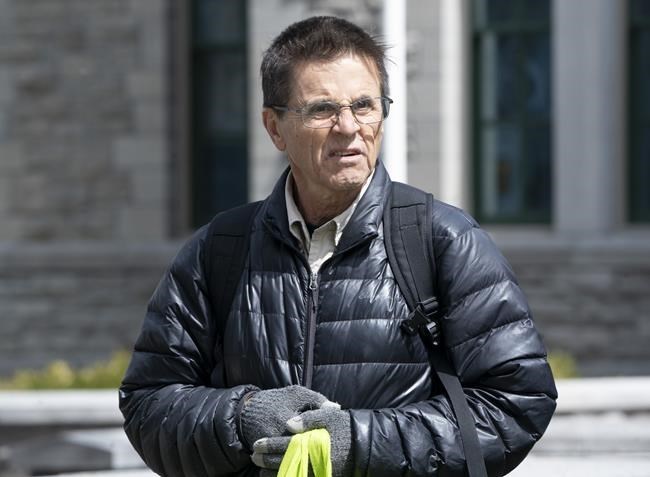OTTAWA — The federal government's representative in the Senate says he misspoke earlier this spring when he suggested that France had requested the extradition of Ottawa sociology professor Hassan Diab.
In a new letter to Justin Trudeau, over 130 members of the Canadian legal community referred to the April 27 remarks by Sen. Marc Gold in urging that extradition must not be used as "an instrument of persecution and scapegoating."
Diab, who has always claimed innocence, was tried in absentia in Paris for a 1980 attack on a synagogue that killed four and wounded 46 people.
A French court sentenced Diab to life in prison on April 21 and issued a warrant for his arrest.
The letter to Trudeau notes Gold subsequently told fellow senators that an extradition request from France had been received and was "being examined."
Gold now says that he will not comment on any potential extradition requests, and suggested that Canada has not yet reviewed the written reasons for the conviction, as they haven't been released.
In an April 27 response to a question in the Senate about the case, Gold had said in little-noticed remarks that the Canadian government would communicate its decision on France's request publicly as soon as it has been made.
His office said Thursday that Gold "misspoke" that day.
"Canada is aware of a decision from France's cour d'assises to convict Hassan Diab for involvement in a 1980 bombing in France. The written decision will be reviewed when it is released," Gold said in a statement provided by his office Thursday.
"It is important that all cases are treated with due process and fairness. It would be inappropriate to comment on any potential requests for extradition."
In a separate statement Thursday, the Department of Justice said extradition requests are "confidential state-to-state communications, so we cannot comment on any specific cases until made public by the courts."
It said any extradition decisions must take into consideration the requirements of the Extradition Act, "which sets out a series of mandatory and discretionary grounds for refusal to surrender."
It said decisions must also take into account the Canadian Charter of Rights and Freedoms and any submissions made by the person sought for extradition.
Under the first step in the Canadian extradition process, Justice Department officials decide whether or not to issue what is known as an "authority to proceed" to the next step.
If the case goes ahead, a court then decides whether there is sufficient evidence, or other applicable grounds, to justify a person's committal for extradition.
When someone is committed to be extradited, the justice minister must then personally decide whether to order the individual's surrender to the foreign state.
The letter to Trudeau says Diab was convicted despite evidence that strongly shows his innocence.
It is signed by Dalhousie University law professor Rob Currie and Alex Neve, former secretary of Amnesty International Canada, as well as scores of other law professors, retired judges, practising and retired lawyers, and legal researchers from across Canada.
"There is great political pressure in France for someone, apparently anyone, to be convicted for this terrible crime," the letter says, adding that "it appears a conviction was inevitable, despite the lack of an actual case. In the view of the undersigned, this cannot stand."
Diab, 69, was previously sent to France in an earlier phase of the proceedings, which the letter calls a "nightmarish ordeal."
The case stretches back to November 2008, when the RCMP arrested Diab in response to a request from France.
Following lengthy proceedings that wound their way to the Supreme Court of Canada, Diab was extradited to France where he spent three years behind bars, including time in solitary confinement.
French judges dismissed the allegations against him in January 2018 and ordered his immediate release, allowing him to return to Ottawa where he lives with his wife and children.
In May 2021, a French court upheld a decision directing Diab to stand trial, a ruling his Canadian lawyer Donald Bayne called inexplicable.
Diab's supporters have long argued he was in Beirut writing university exams — not Paris — when the attack took place. They say fingerprint, palm print and handwriting evidence clears Diab of the crime.
They maintain the case against him included secret, unsourced intelligence that may be the product of torture.
This report by The Canadian Press was first published June 8, 2023.
Jim Bronskill, The Canadian Press

